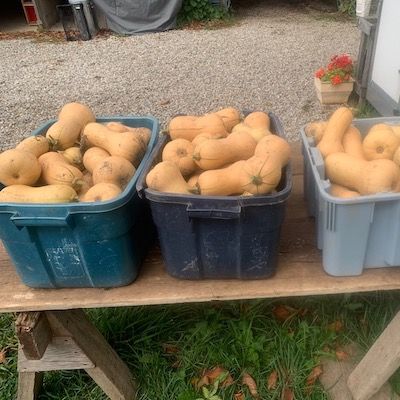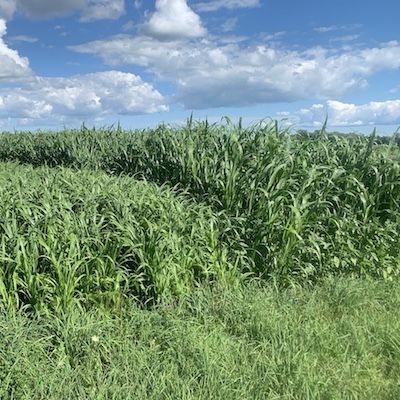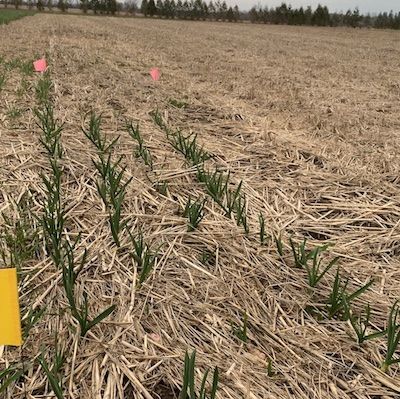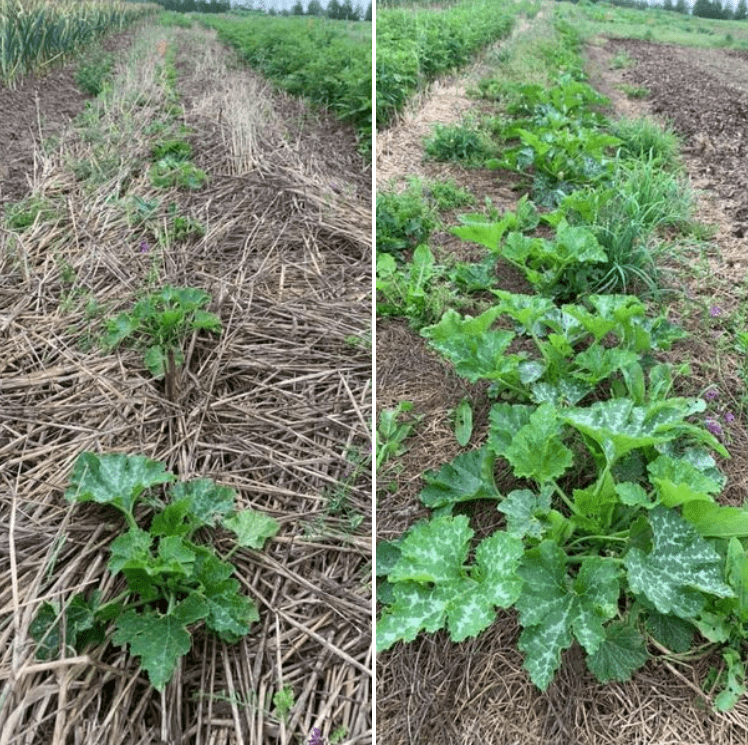
Ken Laing – Organic No-Till Vegetable Trials
To reduce tillage in organic vegetable systems, Ken trialed a total of 13 organic vegetable crops no-till planted or transplanted into nine cover crop combinations.
The most promising no-till planting strategies that produced good weed control and good yields were not continuous no-till systems, since digging root crops is a major tillage event and establishing cover crops to plant into required tillage. They included:
- Organic garlic no-till planted into a mown cover crop of sorghum sudangrass without any tillage for weed control
- Organic potatoes no-till planted into mown cover crop of rye/hairy vetch without any hilling or tillage for weed control
- Winter squash transplanted no-till into rolled hairy vetch and deep compost mulch without any tillage for weed control
Guiding Principles
- Reduce tillage for organic vegetable production
- Use a mechanized approach suitable for mid-scale vegetable grower (i.e. 10-50 ac)
- Avoid the use of agricultural plastic materials
No-till Strategies Used
- Planting or transplanting into winter killed cover crops
- Planting or transplanting into green cover crops either before or after termination
- Planting or transplanting into deep compost mulch (DCM)
Research Strategies Used
- 2020 | A broad survey or proof of concept of many strategies and crops to narrow down promising combinations.
- 2021 | Demonstration plots of the most promising combinations from 2020
- 2022 | Randomized, replicated plots of the demonstration plots from 2021
Follow Ken’s Work

No-Till Vegetable Trials: Winter squash
Growing cover crops so that they provide enough residue to suppress weeds for organic vegetable production requires planning!

No-Till Vegetable Trials: High residue cover crops
Growing cover crops so that they provide enough residue to suppress weeds for organic vegetable production requires planning!

No-Till Vegetable Trials: No-Till Garlic
For the no-till garlic demonstration that is part of EFAO’s No-Till Vegetable Trials, Ken Laing planted garlic on November 1, 2019 into a frost-killed cover crop of sorghum-sudangrass.



